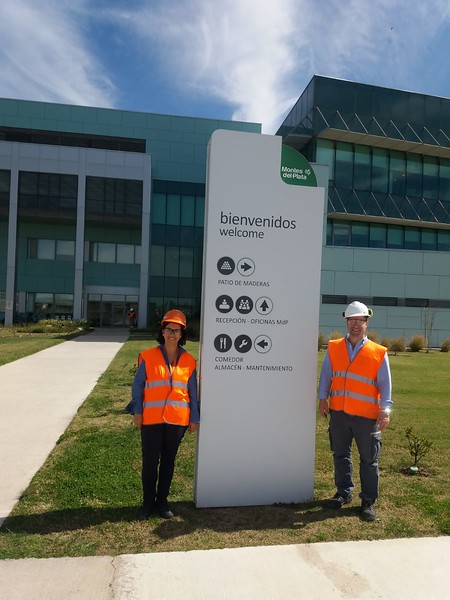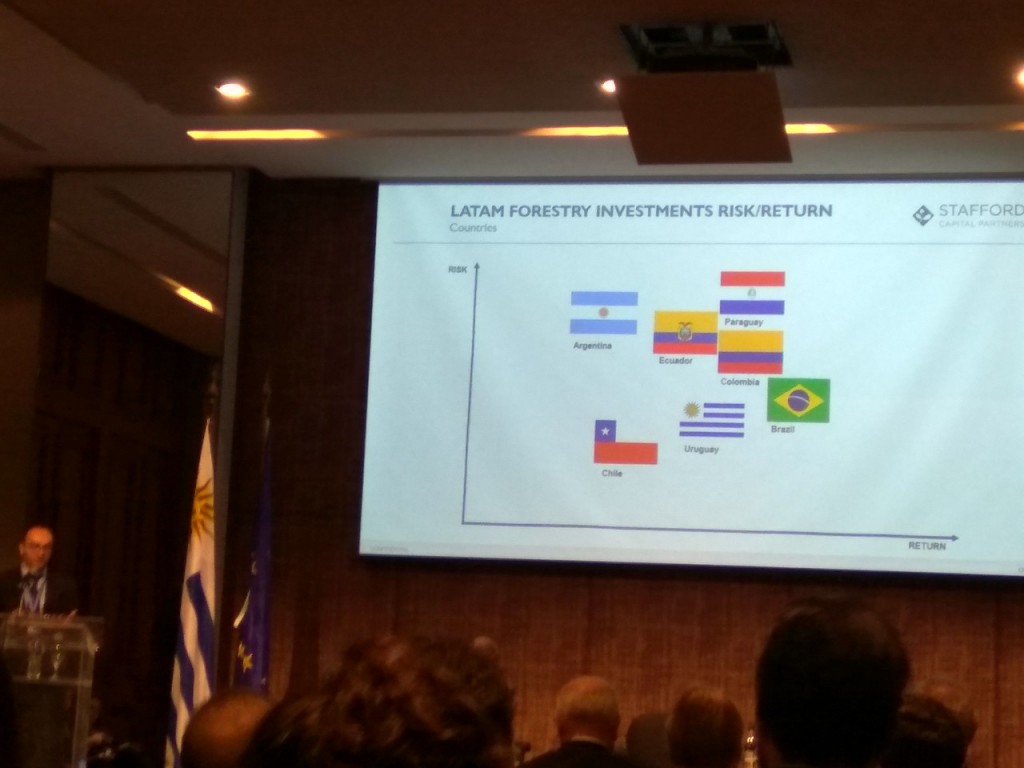That Uruguay punches way above its 3.5m people weight in football or beef, we all know. The country can also compete globally in specific commodities like rice, soybean and wool – but also in industries like software.
What people outside forestry often don’t know is that the South American country is also a leader in this sector. We recently took part in the 2nd EU Investment Forum in Uruguay, which this year focused on forestry and related industries, and there’s a lot to share.
Uruguay is the third largest country in Latin America in relation to forestry and the sector is becoming key to its economy:
“Exports of the forest complex (wood, cellulose and paper) represented 24% of the country’s total exports of goods in 2018. Within this sector, pulp accounted for 77% of the total, while wood and paper accounted for 22% and 2%, respectively.” (Uruguay XXI, August 2019)

On a recent visit to Montes del Plata.
And the world is taking notice:
“Several foreign companies chose Uruguay to set up and develop their activities, such as UPM —Finnish capitals—, which set up in the country in 2007, Montes del Plata —Chilean and Swedish–Finnish capitals— which set up in 2009. In addition, important TIMOs, such as GFP, BTG, The Rohatyn Group, Liberty Mutual and Stafford operate in Uruguay.” (Uruguay XXI, August 2019)
At the conference, we heard for example about the links between log cabins and tourism (another key sector for the Uruguayan economy), biofuels, biomass, bioeconomy and the circular economy.
The National Planning Office (OPP) highlighted forestry (including wood and cellulose) as one of the 10 key sectors to focus on its 30-year strategy. The sector has become so important that there was even some debate as whether the Ministry of Livestock, Agriculture and Fishing should add “Forestry” to its name, too.
Forestry ties in nicely with Uruguay’s country brand (“Uruguay Natural”) and it gives work opportunities outside the capital city, something governments are keen to stimulate. Another advantage of forestry in Uruguay is that it integrates well with livestock farming, and many farmers are now preferring to diversify into forestry. It is worth noting that both Montes del Plata and UPM (including its recently-announced second plant) have benefited from Uruguay’s free trade zone regime. One of the participants also mentioned the importance of tax incentives for importing machinery, for example.
“With respect to eucalyptus, Uruguay is already a success story globally” Dr. Miguel Fabra, Stafford Capital Partners, discussing the potential for pine wood

Dr Miguel Fabra’s presentation and Uruguay’s risk v return position in the region
As a result of this conference, we managed to discuss business for three UK clients: one supplying an actual pulp mill, and two supplying forestry research teams. We have actually visited one of the pulp mills and only once you are there you realise that they have demand for a wide range of state-of-the-art products and services. The same applies to the rest of the related activities: from silviculture through to industry (cellulose/paper mills, chemicals, wood processing, energy), transport (including railways and ports), logistics, certification (the importance of creating a brand for Uruguayan wood was mentioned, too), and research. The 17,000 people who work in the sector also have specific education and training needs.
Not without complaints from environmentalists, forestry in Uruguay is here to stay. Collaborations with Canadians and Americans were mentioned at different stages of the conference, although Europe is the place for other types of partnerships, investments and suppliers. If you can supply it, invest in it or work alongside it, there are certainly plenty of opportunities to explore.
Recommended reading: Uruguay XXI, Investment Opportunities, Forestry Sector, August 2019 (in English)
If you enjoyed the read and would like to know more about doing business in Uruguay and in the rest of Latin America, sign up to our newsletter or follow me on Twitter!
